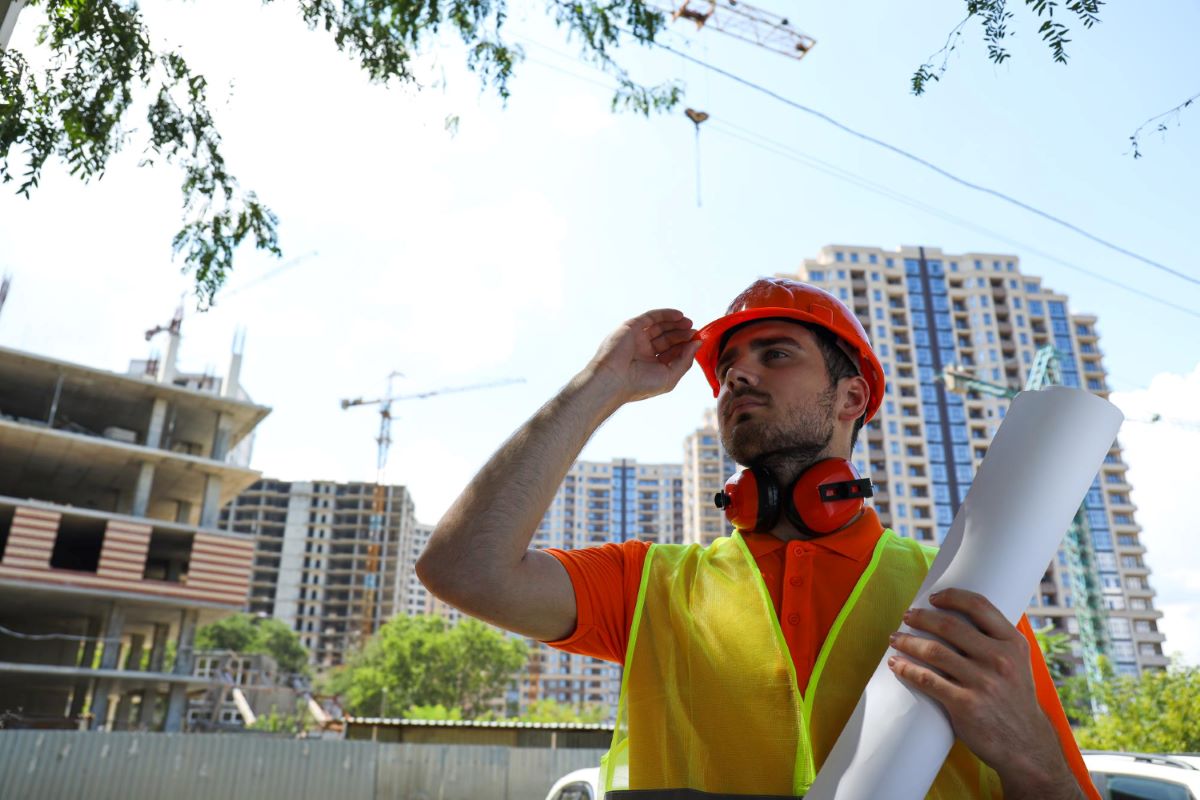
The Ultimate Guide to Construction Project Management in India
The Ultimate Guide to Construction Project Management in India
Table of Content
- The Ultimate Guide to Construction Project Management in India
- 6. Managing Costs and Budget in Construction Projects
- 7. Documentation and Communication in Construction
- 8. Construction Project Management in India: Challenges and Solutions
- 9. Quality Assurance and Timely Delivery
- 10. Success Stories from Construction Projects in India
- Bullet Point Summary:
- Conclusion
- Frequently Asked Questions:-
- Q: What is construction project management?
- Q: What role does a construction project manager play?
- Q: What are the different types of construction projects?
- Q: How can I pursue a career in construction project management?
- Q: What are the important skills for a construction project manager?
- Q: How do construction project managers choose a construction contractor?
- Q: What is the importance of project management in construction?
- Q: How does construction project management software help in managing a construction project?
- Q: What are the different types of project management software used in the construction industry?
- Q: What are the key factors to consider when managing a construction project?

Introduction: Construction Management in India
Welcome to the ultimate guide on construction project management in India! If you’re involved in the construction industry, whether as a project manager, contractor, or even a client, this article is worth reading. We’ll delve into the critical aspects of construction project management, explore the various stages of a construction project, discuss tools and software that can streamline the process, and provide real-world examples from the construction industry in India.
1. Comprehending the Principles of Construction Project Management
What is a construction project?
A construction project is a carefully planned and organized endeavor to build, renovate, or repair a structure or infrastructure. It could be anything from constructing a dream house, residential building, commercial complex, highway, bridge, or even a massive public infrastructure project. These projects involve a series of tasks and activities that need to be coordinated to achieve the desired outcome within a specific timeframe and budget.
The role of project management in the construction industry:
Project management plays a crucial role in the construction industry as it ensures that the project is executed efficiently, within budget, and meets the required quality standards. A construction project manager oversees the entire process, from the initial planning stage to the project’s completion. They are responsible for coordinating various teams, managing resources, and addressing challenges that may arise during the project.
Key challenges faced in construction project management:
The construction industry is known for its complexities and challenges. Some of the common challenges faced in construction project management include:
1. Scope Creep: Project scope may expand beyond its initial definition, leading to increased costs and delays.
2. Resource Management: Efficiently managing labor, materials, and equipment to avoid delays and cost overruns.
3. Risk Management: Identifying and mitigating potential risks that may impact the project’s success.
4. Regulatory Compliance: Ensuring the project adheres to local regulations and building codes.
5. Coordination Issues: Coordinating different teams and stakeholders involved in the project.
6. Communication Problems: Effective communication is essential for the smooth execution of a project.
7. Cost Control: Managing the project budget and preventing unnecessary expenses.
2. Phases of Construction Project Management
Initiating the project: Defining project scope and objectives:
The first stage of construction project management involves defining the project’s scope, objectives, and deliverables. It’s crucial to have a clear understanding of what needs to be accomplished, the resources required, and the project’s timeline. The project manager works closely with the client or stakeholders to identify their needs and expectations.
Planning phase: Creating a comprehensive project plan:
During the planning phase, a detailed project plan is created, outlining the tasks, timelines, and resources needed for each stage of the project. The construction project manager develops a work breakdown structure (WBS) that breaks down the project into manageable tasks and assigns responsibilities to different teams.
Execution and construction phase: Managing on-site activities:
In this phase, construction work begins according to the project plan. The project manager oversees the execution, ensures resources are available on time and monitors progress. Regular site visits and inspections are conducted to check for adherence to quality and safety standards.
Monitoring and control: Ensuring project progress and quality:
The project manager closely monitors the project’s progress, compares it with the planned schedule, and identifies any deviations. Regular reporting and communication are vital to keep all stakeholders informed about the project’s status.
Project completion: Closing out the project successfully:
Upon completion of the construction work, the project manager ensures that all deliverables meet the required quality standards. The project is officially closed out, and any necessary documentation is finalized, including project reports and financial records.
3. Important figures in the field of Construction Project Management

The role of a construction project manager:
The construction project manager is the central figure in the project’s success. They are responsible for overseeing every aspect of the project, including planning, organizing, and controlling all activities. Their roles and responsibilities include:
– Defining project objectives and scope in collaboration with stakeholders.
– Creating a comprehensive project plan and work schedule.
– Identifying and mitigating project risks.
– Procuring and managing resources, including labor, materials, and equipment.
– Monitoring progress and ensuring the project stays on track.
– Handling any issues or conflicts that may arise during construction.
– Ensuring compliance with safety and quality standards.
– Reporting project status to stakeholders.
Responsibilities of the project team:
The project team comprises various professionals, including architects, engineers, contractors, subcontractors, and laborers. Each member of the team plays a specific role in the project’s success:
– Architects and Engineers: They are responsible for the design and technical aspects of the project.
– Contractors and Subcontractors: They handle the actual construction work and manage on-site activities.
– Laborers: They perform physical tasks as directed by the contractors.
– Project Owner and Clients: They define project objectives and requirements and provide the necessary funding.
Collaboration between the client, contractor, and stakeholders:
Effective collaboration and communication between all parties involved are vital for the smooth execution of a construction project. The client’s needs and expectations must be clearly communicated to the project manager and team, and any changes or revisions should be addressed promptly. Regular meetings and progress reports help maintain transparency and keep everyone on the same page.
4. Construction Project Management Tools and Software
Cloud-based construction project management software solutions:
In recent years, cloud-based construction project management software solutions have revolutionized the industry. These software platforms offer a centralized hub where project teams can collaborate, share documents, and track progress in real-time. These software platforms can be used for any type of construction. Some popular cloud-based project management tools include Procore, Autodesk BIM 360, and PlanGrid.
Construction management software for efficiency and organization:
Construction management software streamlines various processes, such as scheduling, resource allocation, and budget tracking. These tools improve overall project efficiency and reduce manual errors. Examples of construction management software include Primavera P6, Microsoft Project, and BuilderTREND.
Work breakdown structure (WBS) for project planning:
A Work Breakdown Structure (WBS) is a hierarchical chart that breaks down a construction project into smaller, manageable tasks. It helps in defining project scope, assigning responsibilities, and estimating project timelines and costs. The WBS provides a clear visual representation of the project’s components and how they fit together.
Using these tools and software not only enhances communication and collaboration but also increases the overall efficiency of construction project management, ultimately leading to successful project outcomes.
5. Safety and Supervision on Construction Sites
Ensuring construction site safety measures:
Safety should be a top priority on any construction site to prevent accidents, injuries, and even fatalities. Project managers must enforce strict safety protocols and ensure that all workers are adequately trained and equipped with the necessary personal protective equipment (PPE). Regular safety inspections and safety training sessions should be conducted to keep the workforce updated on safety best practices.
The importance of supervision in preventing accidents:
Effective supervision is critical in maintaining a safe working environment. Construction project managers and supervisors must be vigilant in identifying potential hazards and ensuring that workers adhere to safety guidelines. Regular safety meetings and toolbox talks are essential for reinforcing safety protocols and addressing any safety concerns.
Managing construction site workers effectively:
A construction project involves workers with diverse skills and backgrounds. Properly managing this workforce requires clear communication, adequate training, and efficient allocation of tasks. The project manager should foster a positive work environment to boost productivity and maintain motivation among the workers.
6. Managing Costs and Budget in Construction Projects

Estimating and controlling project costs:
Accurate cost estimation is vital for project success. The construction project manager must prepare a detailed budget that includes all direct and indirect costs, such as labor, materials, equipment, permits, and contingency funds. Regular cost monitoring is necessary to prevent cost overruns and ensure that the project stays within budget.
Handling unexpected expenses and contingencies:
Construction projects are often subject to unforeseen challenges and changes.
It is essential to have contingency plans in place to address unexpected expenses or delays. The project manager should work closely with stakeholders to find solutions that won’t compromise the project’s quality or timeline.
Tips for cost-effective construction management:
– Efficient resource allocation to optimize material and labor costs.
– Procurement of materials from reliable suppliers to avoid wastage and delays.
– Regularly comparing actual costs to the budget to identify areas where savings can be made.
7. Documentation and Communication in Construction
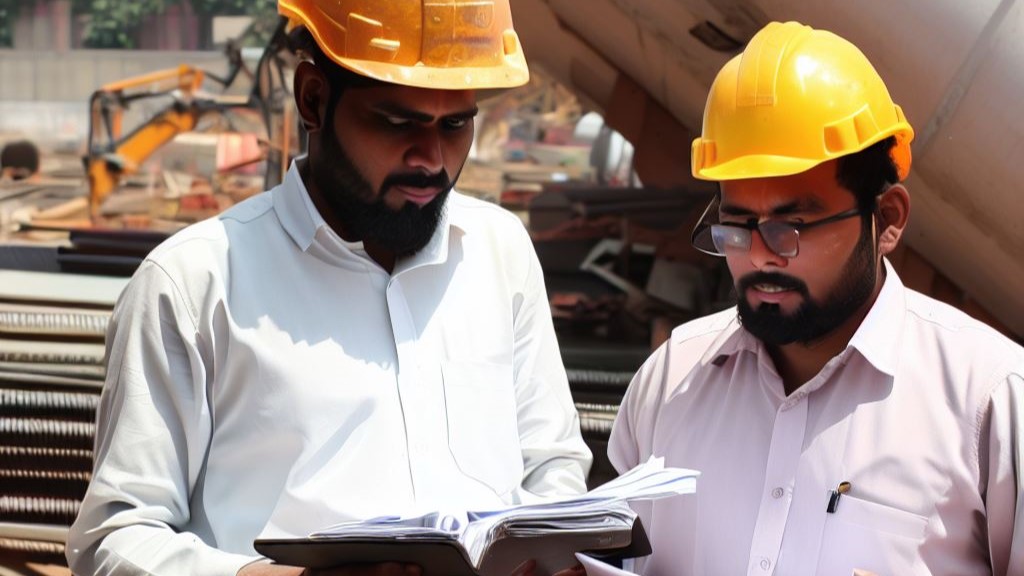
Importance of project documentation:
Comprehensive project documentation is essential for maintaining a clear record of the project’s progress, decisions made, and changes implemented. It serves as a valuable resource for project managers, stakeholders, and future reference. Documentation includes meeting minutes, progress reports, change orders, and various project-related communications.
Effective communication throughout the project lifecycle:
Communication is the backbone of successful construction project management. Regular meetings, emails, and reports help keep all stakeholders informed about the project’s status, challenges, and upcoming milestones. Transparent and efficient communication ensures that everyone involved is on the same page, reducing the likelihood of misunderstandings or conflicts.
How to manage project documentation efficiently:
– Utilize cloud-based storage solutions for easy access and sharing of documents.
– Assign a dedicated team member responsible for maintaining and organizing project documents.
– Regularly update and review documentation to ensure accuracy and completeness.
8. Construction Project Management in India: Challenges and Solutions

Unique challenges faced in the Indian construction industry:
The construction industry in India faces specific challenges, such as:
– Rapid Urbanization: The demand for infrastructure in urban areas poses significant challenges for construction project management.
– Regulatory and Legal Compliance: Navigating complex regulatory frameworks and obtaining permits can be time-consuming.
– Skilled Labor Shortage: There is a shortage of skilled labor, especially in specialized construction fields.
– Weather and Climate: Weather conditions can affect construction schedules and project timelines.
Best practices and solutions for successful project management in India:
– Local Knowledge and Expertise: Hiring local talent with knowledge of the region and its regulations can be beneficial.
– Collaboration with Government Authorities: Engaging with local authorities and regulators early in the planning process can expedite approvals.
– Investing in Workforce Development: Training and upskilling the workforce to address the labor shortage.
– Adopting Sustainable Practices: Implementing eco-friendly and sustainable construction practices.
9. Quality Assurance and Timely Delivery

Ensuring the quality of construction work:
Quality assurance is essential to ensure that the construction project meets the required standards. Regular inspections, testing, and adherence to design specifications are crucial to achieving high-quality results. Any deviations or deficiencies should be addressed promptly to avoid costly rework.
Meeting project deadlines in a timely manner:
Timely delivery of a construction project is critical for client satisfaction and financial success. The project manager must closely monitor progress and identify potential delays. Proactive measures should be taken to prevent delays, such as resource reallocation or adjustment of schedules.
Overcoming common hurdles in project completion:
– Inadequate Planning: Comprehensive planning from the beginning can prevent delays and setbacks.
– Supply Chain Disruptions: Ensuring a robust supply chain and sourcing materials from reliable vendors.
– Weather-Related Delays: Building weather contingencies into the project schedule.
10. Success Stories from Construction Projects in India
Case studies of top construction projects in India:
India has witnessed several remarkable construction projects that have set new benchmarks in the industry.
For example:
1. Antilia, Mumbai:
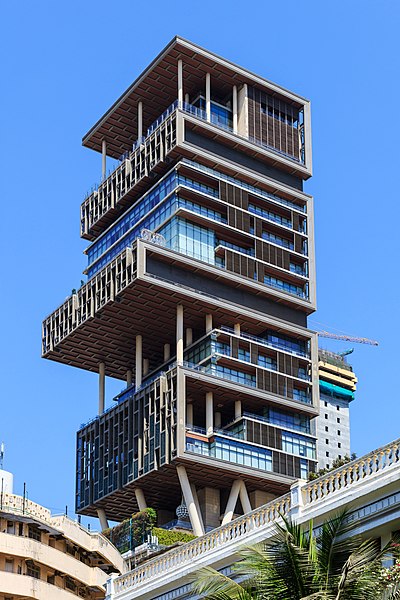
Antilia is a private residence located in South Mumbai, considered one of the most expensive houses in the world. Owned by the billionaire Mukesh Ambani, the 27-story residence stands as an architectural marvel. This impressive house features a unique design inspired by the Hanging Gardens of Babylon and modern skyscrapers. With its luxurious amenities and meticulous attention to detail, Antilia showcases the epitome of construction excellence and opulence in residential architecture.
2. Jawahar Kala Kendra, Jaipur:
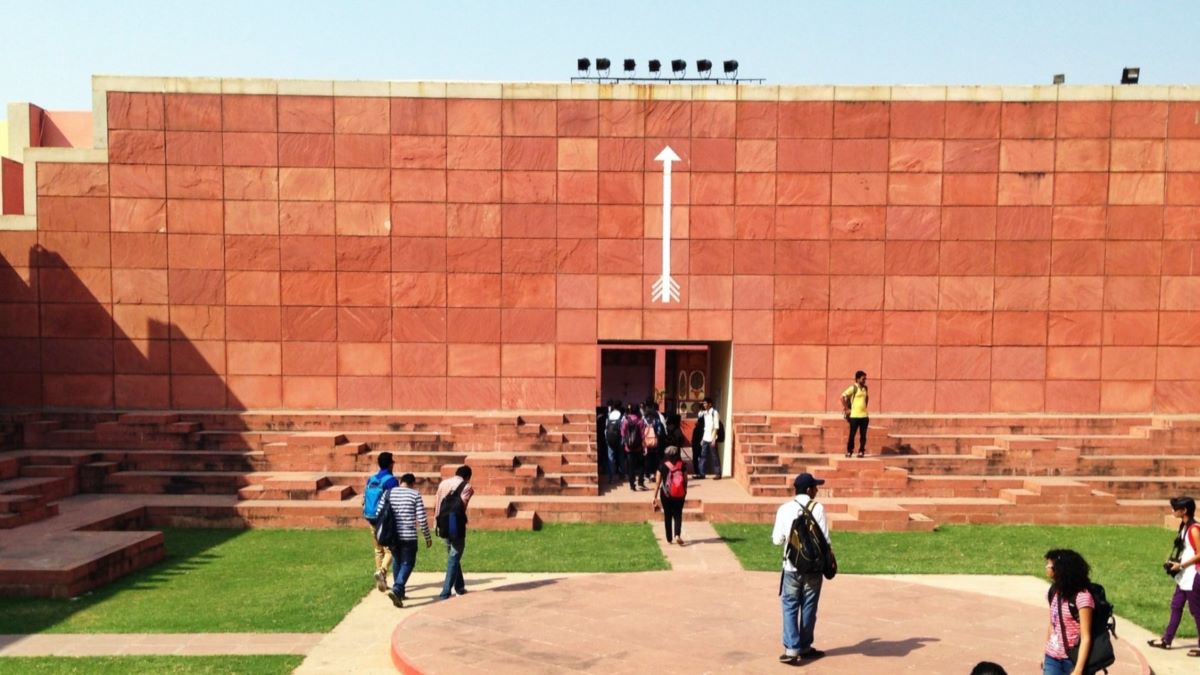
Jawahar Kala Kendra is a cultural center and art museum in Jaipur, Rajasthan. Designed by renowned architect Charles Correa, this building exemplifies a harmonious blend of modern design and traditional Rajasthani architecture. The use of exposed brickwork, intricate jalis (perforated screens), and courtyard-style planning creates a visually captivating space. The construction of this center showcases the integration of cultural heritage and modern architectural principles.
3. Nek Chand’s Rock Garden, Chandigarh:
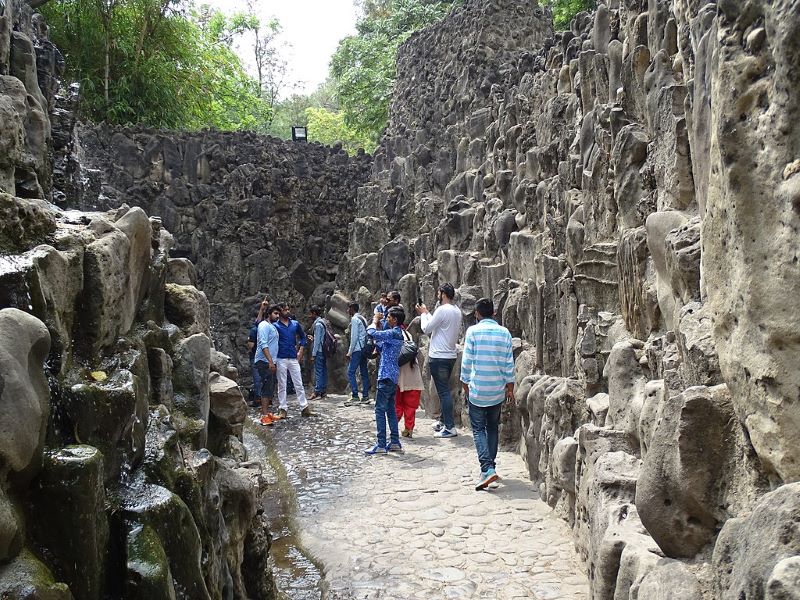
The Rock Garden in Chandigarh is a unique example of creative construction. It was created by Nek Chand, a government official who secretly built this extraordinary sculpture garden using recycled materials. The garden features sculptures made from discarded items like broken ceramics, glass, and industrial waste. This labor of love and creativity demonstrates the power of construction to transform waste into art, making it a significant landmark in India’s cultural and artistic landscape.
4. Taj Falaknuma Palace, Hyderabad:

Taj Falaknuma Palace is a stunning heritage hotel located in Hyderabad, Telangana. Originally built in the late 19th century, it was later restored and converted into a luxury hotel by the Taj Group. The palace exemplifies the intricate craftsmanship of the Nizam era with its Italian marble, ornate chandeliers, and regal interiors. The meticulous restoration and conservation efforts showcase the art of preserving historical architecture while providing modern comforts for guests.
5. Villa Palma, Goa:

Villa Palma is an exquisite private residence in Goa, known for its stunning contemporary design and eco-friendly features. The house is built in harmony with its natural surroundings, with an open layout that allows ample natural light and ventilation. The use of sustainable materials and renewable energy sources demonstrates how modern construction practices can align with environmental responsibility.
Each of these beautiful projects showcases the creativity, innovation, and dedication required in construction projects. They serve as inspiring examples of how a well-planned and executed construction project can result in architectural masterpieces that stand the test of time. These houses not only provide comfort and functionality but also contribute to the cultural heritage and aesthetic beauty of their respective regions.
Key takeaways and lessons learned from successful ventures:
– Effective Planning and Project Management: Thorough planning and efficient project management are crucial for large-scale projects.
– Innovation and Technology: The adoption of innovative construction methods and technology enhances efficiency and quality.
Bullet Point Summary:
– Construction project management plays a vital role in ensuring successful projects within budget and timeline.
– Stages of construction project management: initiation, planning, execution, monitoring, and project completion.
– Key players include project managers, teams, clients, contractors, and stakeholders, requiring effective collaboration and communication.
– Utilizing construction management tools and software streamlines processes and improves efficiency.
– Safety and supervision are critical for accident prevention and ensuring construction site workers’ well-being.
– Effective cost management and handling contingencies are essential for successful construction projects.
– Comprehensive documentation and communication help maintain transparency and aid project progress.
– India faces unique challenges, but adopting best practices and local expertise can overcome them.
– Ensuring quality and timely delivery are essential for project success.
– India has witnessed remarkable construction projects with valuable lessons for future ventures.
Conclusion
Construction project management is a multifaceted discipline that demands meticulous planning, coordination, and execution. From initiating a project and creating a detailed plan to managing costs, resources, and timelines, each stage requires careful attention to ensure success.
In India, the construction industry has seen remarkable growth and development, with several ambitious projects transforming the landscape of the country. However, with this growth comes unique challenges, including regulatory compliance, skilled labor shortages, and weather-related hurdles. To overcome these challenges, it is essential to leverage local knowledge, invest in workforce development, and adopt sustainable practices.
Effective communication and collaboration among all stakeholders are crucial for the seamless execution of construction projects. Cloud-based project management solutions and specialized software have revolutionized the industry, allowing real-time communication and data-sharing, thereby increasing efficiency and productivity.
Safety on construction sites should be a top priority, and project managers must enforce strict safety protocols and ensure that workers are equipped with the necessary safety gear. Adequate supervision is necessary to prevent accidents and maintain a safe working environment.
Managing costs and adhering to budgets are critical for the financial success of construction projects. Accurate cost estimation, efficient resource allocation, and regular cost monitoring can help prevent cost overruns and keep the project on track.
Timely delivery and quality assurance are key to meeting client expectations and ensuring project success. Adherence to project timelines, proactive problem-solving, and stringent quality control measures are essential for achieving these goals.
India’s construction industry has witnessed several remarkable success stories, and these projects offer valuable lessons for future ventures. Embracing innovation, utilizing technology, and learning from past experiences can lead to even more successful projects in the future.
In conclusion, construction project management is a dynamic and challenging field that requires a holistic approach and effective leadership. By understanding the stages of project management, leveraging the right tools and software, prioritizing safety and quality, and learning from both successes and challenges, construction projects in India can achieve unprecedented heights of success.
Remember, successful construction project management is not just about completing a project; it’s about creating something that adds value to society, enhances the environment, and stands as a testament to the collaboration and ingenuity of the construction industry.
Frequently Asked Questions:-
Q: What is construction project management?
A: Construction project management is the process of planning, coordinating, and executing a construction project from start to finish. It involves managing resources, schedules, budgets, and ensuring the successful completion of the project.
Q: What role does a construction project manager play?
A: A construction project manager is responsible for overseeing and managing every aspect of a construction project. They are accountable for planning, organizing, and controlling the project to ensure it is completed on time, within budget, and according to the specified requirements.
Q: What are the different types of construction projects?
A: There are various types of construction projects, including residential construction (single-family homes, apartment buildings), commercial construction (office buildings, retail stores), industrial construction (factories, warehouses), and civil construction (bridges, roads, dams).
Q: How can I pursue a career in construction project management?
A: To pursue a career in construction project management, it is beneficial to have a degree in construction management or a related field. Gaining industry experience through internships or entry-level positions can also help in building a successful project management career in the construction industry.
Q: What are the important skills for a construction project manager?
A: Some essential skills for a construction project manager include leadership, communication, problem-solving, time management, and attention to detail. They should also have a strong understanding of construction processes, contracts, and project management software.
Q: How do construction project managers choose a construction contractor?
A: Construction project managers choose contractors based on various factors such as their experience, reputation, expertise, previous work samples, and financial stability. It is important to select a contractor who is qualified, reliable, and can effectively execute the construction project.
Q: What is the importance of project management in construction?
A: Project management in construction is crucial for the successful execution of projects. It helps in ensuring that the project is completed within the allocated budget, adheres to the set timeline, and meets the desired quality standards. Effective project management also helps in minimizing risks and maximizing efficiency in construction projects.
Q: How does construction project management software help in managing a construction project?
A: Construction project management software helps in streamlining project documentation, communication, scheduling, budgeting, and resource management. It allows project managers to track progress, collaborate with team members, and generate reports, enhancing overall project efficiency and productivity.
Q: What are the different types of project management software used in the construction industry?
A: There are several project management software used in the construction industry, including Primavera P6, Procore, PlanGrid, Autodesk BIM 360, and Microsoft Project. Each software offers different features and capabilities to facilitate effective project management in construction.
Q: What are the key factors to consider when managing a construction project?
A: When managing a construction project, key factors to consider include budget and cost control, scheduling, procurement of materials and resources, quality control, risk management, stakeholder communication, and compliance with regulatory requirements. Managing these aspects ensures successful project delivery.
Transform Your Dream House with the Best Architect
Transform Your Dream House with the Best Architect Company in
Read MoreUnveiling Modern Luxury House Construction Design in Lutyens
Unveiling Modern Luxury House Construction Design in Lutyens Bungalow ZoneIn
Read MoreYour Ultimate Dream Luxury House Construction in Lutyens
Your Ultimate Dream Luxury House Construction in Lutyens Bungalow ZoneImagine
Read More


